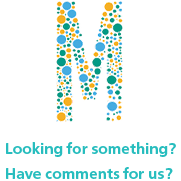We understand the stresses and pressures that come with university life, and we encourage you take advantage of our space and resources to enhance your mental and spiritual well-being. This page offers clinical and non-clinical faith and mental health resources that are available to you at McGill, online or in Montreal.
McGill students have access to clinical mental health resources through the Student Wellness Hub, telehealth services, and GuardMe.
Priority Appointments
McGill students experiencing high distress can contact MORSL Director Carlene Gardner to discuss a priority referral to the Student Wellness Hub (carlene.gardner [at] mcgill.ca (contact Carlene Gardner by email), call MORSL, or book an appointment).
Faith-based mental health supports through MORSL partners or third party organizations
Chaplaincy services are offered by MORSL and its volunteers including chaplains of various religious backgrounds (Muslim, Jewish, Christian, Sikh, etc.). MORSL is grateful for the outreach provided by these faith volunteers. You can reach out to any of them to arrange a consultation.
Faith-based mental health support for Muslim students
- Muslim chaplains: MORSL faith volunteers.
- Canadian Muslim Counseling: Provides sessions with psychotherapists and social workers from an Islamic perspective in a culturally responsive manner.
- Nisa Helpline: Supports Muslim women across North America seeking confidential, peer-to-peer counselling on a variety of issues: 1.888.315.NISA (6472).
- Naseeha Mental Health Hotline: 1.866.627.3342
- The Productive Muslim: Organizes events and seminars to help Muslims spiritually, physically, and socially by mastering their focus, time, and energy.
- The Sufi Gardener: A virtual platform to inspire a deeper understanding of the connections between spiritual growth, mindful living and the art of community facilitation.
- ruh: an Islamic mindfulness and contemplation app developed by Ottawa-based creators.
Faith-based mental health support for Jewish students
- Jewish chaplains: MORSL faith volunteers.
- Hillel individual or group sessions: Free. Led by professional therapists.
- RUACH: A network of Jewish emotional and spiritual volunteer-supporters with emotional and spiritual advising skills, spanning the Jewish denominational spectrum. Provides support for those from any denominational or religious background. They provide inclusive and accessible support to persons from all walks of life, regardless of religion/observance level, age, nationality, gender identity, orientation, or political affiliation. RUACH is non-clinical and does not provide mental health, medical or other therapeutic care.
- Chazkeinu: Provides chizuk – strength to all Jewish women coping with mental illness via phone meetings.
- Teshuva Healing Circle: Creates a safe, supportive space open to anyone looking for a refuge of peace and who brings a willingness to participate fully. May appeal particularly to practitioners of the Choose Again Six Step process looking for a specifically Jewish context and forum. Choose Again experience is not required to participate. Groups are limited to 15, meeting via Zoom once a month.
Faith-based mental health support for Christian students
- Christian chaplains: MORSL faith volunteers.
- Sanctuary Mental Health Ministries: Provides resources that engage the topics of faith and mental health in order to prepare communities of faith around the world to raise awareness, reduce stigma, support mental health, and promote mental wellbeing. They provide Christian-inspired mental health courses, a blog, and other mental health resources.
- The Sanctuary Course: Study guide for small groups, designed to raise awareness and start conversations in local churches regarding mental health. Free.
- Race, mental health, and faith resources
- Sanctuary blog: Information related to faith and well-being.
- Sanctuary Mental Health podcast: Can mental health challenges and faith co-exist?
Faith-based mental health support for Sikh students
- Volunteers from the Sikh faith: MORSL faith volunteers.
- Sikhnet resources (listed at bottom of article) provide further perspectives on mental health through the lens of Sikh scriptures.
Student/Peer Mental Health Supports
- MORSL Peer Conversation Partners - book a session with one of our student volunteers
- SSMU Peer Support Centre (PSC)
- SACOMMS Peer Support for Allies and Survivors - Drop-in support Mondays and Wednesdays 3-6pm or by appointment at 3480 McTavish St., Room B27
- McGill Students' Nightline (514-398-6246)
